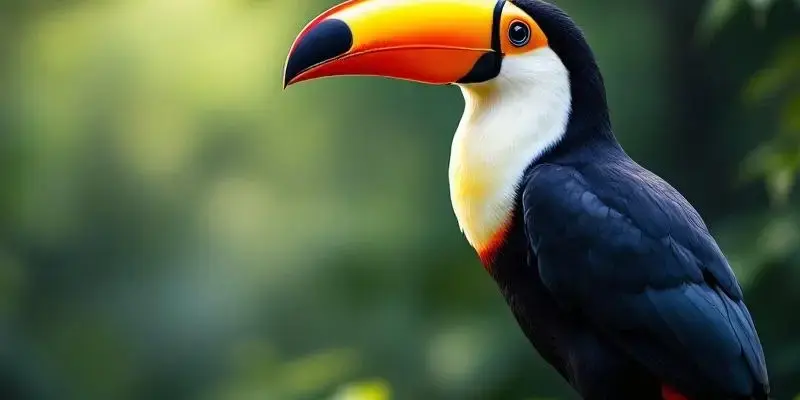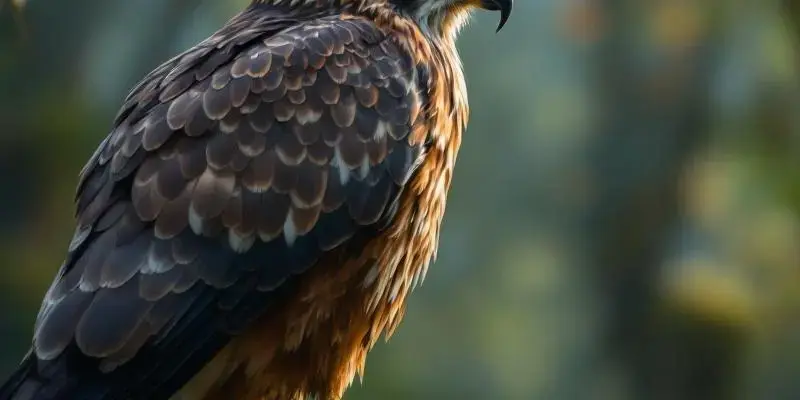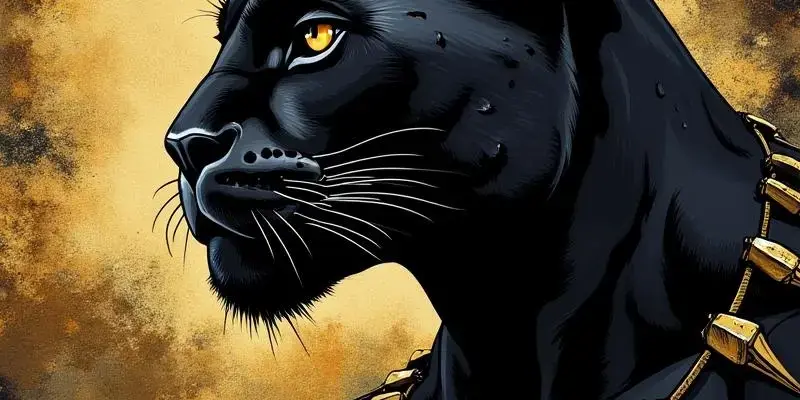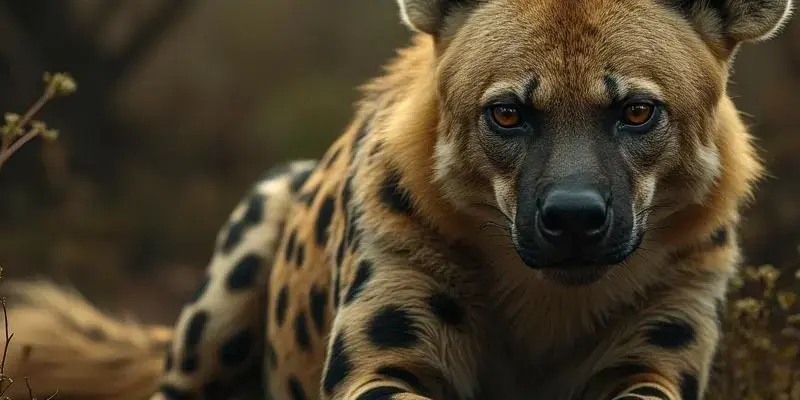Jackal spiritual meaning
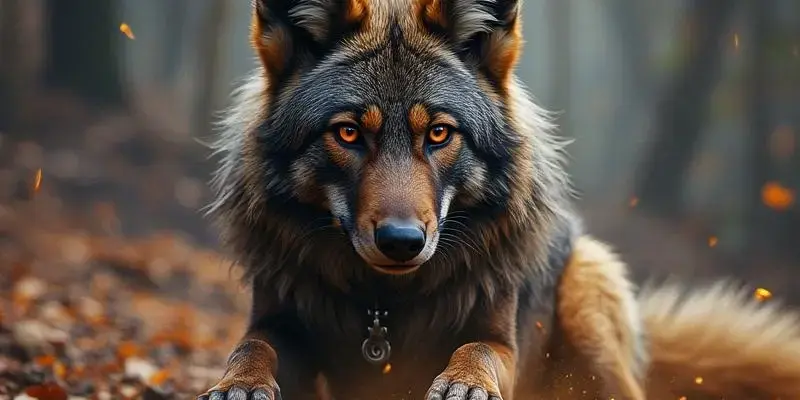
Jackals have fascinated humanity for thousands of years, serving as powerful spiritual symbols across diverse cultures and religious traditions. These adaptable canines with their haunting calls and nocturnal habits represent profound spiritual concepts including transformation, resourcefulness, divine judgment, and the transition between life and death.
Key Takeaways
- Jackals are most famously associated with Anubis, the Egyptian god of the afterlife, dating back to 2500 BCE
- In Biblical texts, jackals appear approximately 15 times, symbolizing divine judgment and desolation
- As a spirit animal, the jackal represents exceptional resourcefulness and problem-solving abilities
- Cultural interpretations vary widely, with jackals seen as sacred creatures in some traditions and omens in others
- Working with jackal energy requires balancing its transformative power with ethical considerations
The Ancient Significance of Jackals in Spiritual Traditions
Jackals have captured human imagination across millennia through their distinctive behaviors and remarkable survival skills in harsh environments. These resilient canines appear in approximately 14-15 biblical references and hold significant positions in at least seven major cultural traditions worldwide. The most famous spiritual association is with Anubis, the Egyptian god of the afterlife, who was depicted with a jackal head.
This ancient connection dates back to texts from 2500 BCE, establishing jackals as potent symbols of transition between worlds. Unlike their close relatives wolves with their pack mentality, jackals often operate more independently while maintaining complex social structures. Their ability to thrive in challenging landscapes has made them powerful metaphors for adaptation and perseverance in spiritual contexts.
The biblical reference “They will be given over to the sword and become food for jackals” (Psalm 63:10) highlights their role as symbols of divine consequence. Their haunting calls echoing across desert landscapes created natural associations with spiritual realms and mysterious forces beyond ordinary human perception.
Anubis and Egyptian Afterlife: Jackals as Divine Guides
The god Anubis, who presided over the mummification process and judged the moral worth of the dead, was frequently depicted with the head of a jackal. Ancient Egyptians observed jackals scavenging near burial sites, creating a natural association with death and the afterlife. This connection was so profound that during mummification, it wasn’t uncommon for presiding priests to wear jackal-head masks to invoke this deity’s presence.
Unlike other cultures where jackals received negative associations, Egyptians venerated these animals as sacred guides through death’s transition. Archaeological evidence from burial chambers shows countless depictions of Anubis performing his crucial role weighing the deceased’s heart against Ma’at’s feather of truth to determine their worthiness for eternal life.
This positive portrayal of jackals stands in contrast to some other ancient perspectives. The jackal’s keen senses and intelligence made it an ideal symbol for a deity who could navigate the boundaries between worlds and guide souls safely to their final judgment.
Biblical Jackal Symbolism: Desolation and Divine Judgment
Jackals in the Bible symbolize visible signs of desolation, judgment, and spiritual barrenness. These animals appear roughly 15 times throughout scripture, consistently representing abandonment and God’s judgment upon wicked places. Biblical references to jackals create powerful visual imagery of once-thriving cities reduced to wilderness where only wild creatures dwell.
Ancient Near Eastern records and archaeological findings confirm that wild canines, including jackals, were common in times predating recorded biblical events through to the first centuries AD. In several translations, jackals are called “wild dogs,” emphasizing their untamed nature. This portrayal differs significantly from the fox’s spiritual symbolism of cleverness and adaptability.
Key references appear in numerous biblical passages, each reinforcing the symbolism of divine abandonment:
- Isaiah 13:22, 34:13 – Describing fallen kingdoms
- Jeremiah 9:11, 10:22, 49:33, 51:37 – Portraying God’s judgment
- Micah 1:8 – Using jackal imagery in lamentation
- Psalm 44:19, 63:10 – Connecting jackals with spiritual trials
- Job 30:29 and Malachi 1:3 – Expressing desolation and abandonment
The Jackal as Spirit Animal: Resourcefulness and Divine Connection
Jackal symbolism represents exceptional resourcefulness. When this animal appears as a spirit guide, it teaches you to think outside conventional boundaries and develop fresh innovative solutions to challenges. As a spirit animal, the jackal brings powerful messages about adaptation and survival through intelligence rather than brute strength.
The jackal represents divine power, giving those who connect with its energy the ability to tap into spiritual dimensions. People who identify with jackal energy often display remarkable problem-solving abilities and strategic thinking capabilities. As one spiritual teaching suggests, “Failure doesn’t come from a lack of resources. It is the result of a lack of resourcefulness.”
Those with the jackal as their totem animal are typically the smartest in the room. They aren’t afraid to take calculated risks and usually excel in their chosen careers. Unlike related animals such as coyotes with their trickster energy, jackal spiritual energy connects more deeply with transformation and death transitions rather than mere cunning or deception.
Cultural Variations: Jackals Across World Traditions
Jackal symbolism varies dramatically across different cultural contexts, demonstrating how environmental factors and cultural values shape spiritual interpretations. In Serer culture, the supreme deity Roog considers jackals among the first animals created, establishing them as primordial creatures with special spiritual significance.
In Navajo Native American tradition, skinwalkers are known to take on the body of the jackal, along with other animals or humans they wish to embody. This connection to shapeshifting emphasizes the jackal’s association with powerful transformation capabilities and boundary-crossing.
Indian and Pakistani traditions often portray jackals as brave lone animals who demonstrate more courage than even lions. This positive portrayal contrasts significantly with biblical interpretations, highlighting how cultural context influences animal symbolism. In Hindu tradition, particularly Bengali tantric practices, jackals are associated with Kali, the goddess of death and destruction. It’s said she appears as jackals when meat offerings are made to her.
These diverse interpretations demonstrate how the same animal can carry radically different symbolic meanings depending on the cultural lens through which it’s viewed. The jackal’s adaptability in harsh environments mirrors its adaptability across spiritual systems.
The Shadow Side: Negative Associations and Warnings
Despite positive spiritual attributes, jackals also carry darker symbolic meanings. From a spiritual perspective, the jackal can represent individuals whose worldly cunning and indifference to others’ suffering becomes their defining characteristic. Their opportunistic feeding habits and scavenging nature have led to associations with selfishness and callousness.
Jackals appear as sorcerers in the folklore of some regions, connecting them with manipulation and dark magic. Some traditions view jackal dreams or sightings as warnings that either your life or someone close to you faces potential danger or requires immediate help.
In modern contexts, particularly in Nonviolent Communication (NVC), the jackal represents one’s inner judgmental voice. This metaphor emerged when Marshall Rosenberg was traveling in Europe and heard a workshop participant complaining about her husband, prompting him to ask, “are you still dealing with that old jackal?” This usage highlights how jackal energy can manifest as critical, judgmental thinking patterns that undermine compassionate communication.
Working with Jackal Energy: Modern Spiritual Practices
For those drawn to jackal energy, specific practices can help harness its positive aspects while minimizing negative manifestations. You’re being called to exercise your divine powers – lean into communities that amplify your values, instincts, curiosity, and playfulness for protection and guidance during challenging times.
People with jackal as their spirit guide tend to maintain strong and passionate relationships. They demonstrate exceptional loyalty and will never abandon friends or family during difficult periods. Balancing the solitary aspects of jackal energy with community connection becomes essential for spiritual growth.
Encountering this power animal suggests that spending some time alone will help increase your productivity and assist you in finding solutions to problems. Meditation during twilight hours (15-20 minutes) can strengthen your connection to jackal energy, as these animals are most active during dawn and dusk.
When working with jackal energy, remember that the companions you choose significantly impact your success in using your divine powers. Surround yourself with people who support your resourceful nature while helping you avoid slipping into selfishness or opportunism. Through mindful engagement with jackal symbolism, you can access ancient wisdom about transformation and the delicate balance between independence and community connection.
The article explores jackals’ spiritual symbolism across diverse cultures and religious traditions. These adaptable canines represent transformation, resourcefulness, divine judgment, and the afterlife transition. They’re most famously linked to Anubis, the Egyptian god of the afterlife dating back to 2500 BCE. Biblical texts portray jackals as symbols of desolation and judgment, while as spirit animals they embody exceptional resourcefulness and problem-solving abilities. Cultural interpretations vary dramatically, with jackals considered sacred in some traditions while being associated with darker elements in others. Modern spiritual practices suggest working with jackal energy requires balancing its transformative power with ethical considerations.
| Key Aspect | Spiritual Significance |
|---|---|
| Egyptian Mythology | Associated with Anubis, guide through the afterlife |
| Biblical References | Symbol of divine judgment and desolation (~15 mentions) |
| Spirit Animal | Represents resourcefulness, problem-solving, adaptation |
| Cultural Variations | Ranges from sacred creature to omen across traditions |
| Shadow Aspects | Can symbolize selfishness, opportunism, judgment |

